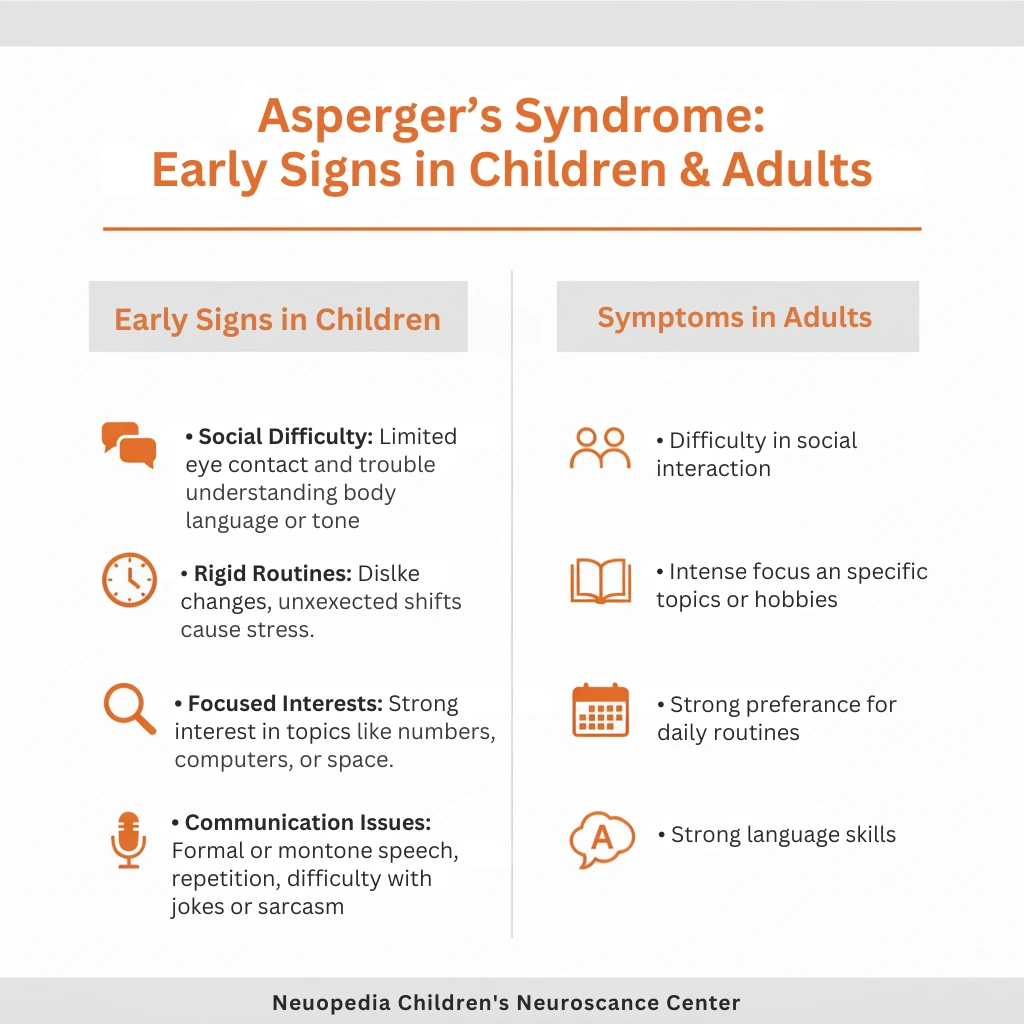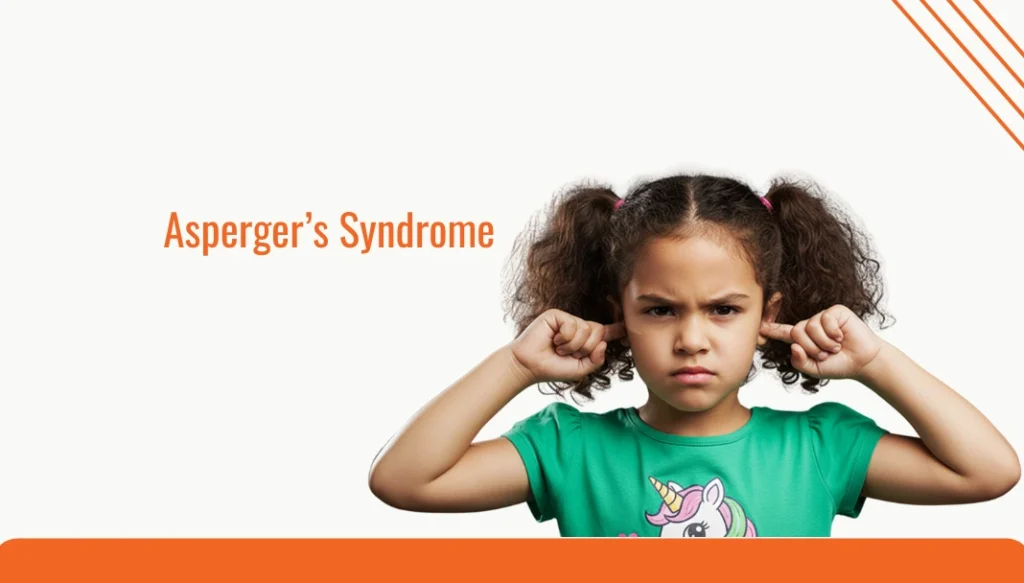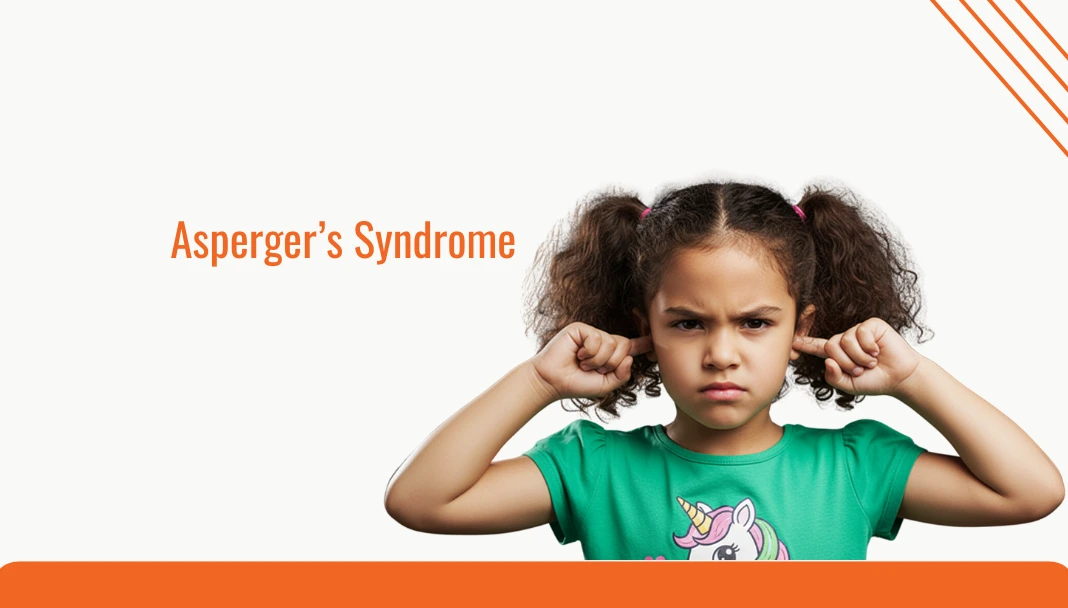Understanding Asperger’s Syndrome – Unique Neurodevelopmental Condition
Asperger’s syndrome refers to a developmental disorder on the autism spectrum. Austrian paediatrician Hans Asperger first described the condition Asperger’s, also called Aspergers. The term was officially folded into Autism Spectrum Disorder. Still, many use the term “Asperger’s syndrome” to describe individuals with mild autism traits.
In this blog, we will explore Asperger’s syndrome in children, symptoms, and how it is connected to autism.
What is asperger syndrome?
Aspergers meaning goes beyond just a medical diagnosis. Aspergers autism is a lifelong condition that influences how children understand and interact with others. Unlike other forms of autism, children with asperger’s have exceptional intelligence and language skills, but they struggle with social interaction and nonverbal communication.
Most of them consider aspergers autism as a limitation, but specialists consider it as a different neurotype that offers both challenges and strengths.
Asperger syndrome symptoms – Early warning signs in Children

Aspergers symptoms are detected as early as 5 to 9 years, identifying these symptoms in the early stage allows for timely intervention and support. The symptoms may differ for each child, but the common aspergers symptoms include,
- Challenges with social interaction – They feel difficulty making eye contact and responding in a conversational manner. They struggle to understand body language, social cues, and tone of voice.
- Sticking to a routine – They dislike change and mostly stick to the same routine. An unexpected routine shift may cause stress or anxiety.
- Specific areas of interest – children with aspergers autism show passionate interest in certain subjects such as numbers, computer, space, etc from a very young age.
- Challenges with communication – Even if the children develop language skills on time, they find it difficult to communicate; they use formal language, speak in a monotone voice, and repeat words or phrases. For example, they may not understand sarcasm, jokes, or idioms.
Asperger Syndrome Symptoms in Adults
Adults with asperger’s have similar symptoms, such as
- Difficulty in social interaction
- Intense focus on specific topics or hobbies
- Stick with the daily routine
- Strong language skills
Asperger’s syndrome – Diagnosis in children
At what age can we diagnose asperger’s syndrome?
Paediatricians can spot traits of autism in 18 months or younger, and they get an official diagnosis by 2 years. Mostly, Asperger’s is diagnosed later, often around primary school years (5–9 years).
How do paediatricians identify asperger’s in children?
Asperger’s syndrome diagnosis is a comprehensive evaluation conducted by pediatric neurologists, psychologists, and therapists.
They check for,
- Developmental and behavioural history
- Challenges in communication and social skills
- Use standardised diagnostic tools to identify patterns associated with Asperger’s Autism.
Early diagnosis allows supportive strategies that enhance communication and emotional well-being.
Asperger’s Syndrome – Treatment
There’s no specific cure for asperger’s, but early intervention and targeted therapies help children overcome challenges and maximise potential. The treatment targets both children and their families.
- Behavioural therapy – Applied behavioural analysis helps children manage repetitive behaviours, learn social rules, and develop emotional regulation skills.
- Speech and language therapy – improves communication, social conversation, and insights into social cues.
- Occupational therapy – enhances sensory processing, fine motor skills, and daily living abilities.
- Social skills training – group sessions to initiate conversation, make friends and interpret emotions.
- Family counselling – support parents with essential strategies to help their children progress at school or at home.
Asperger’s syndrome Vs Autism – What is the difference?
Autism and Aspergers fall under Autism Spectrum Disorder and share many similarities, but they differ in terms of cognitive development and degree of impairment in language skills.
| Feature | Autism | Asperger’s Syndrome |
| Language Development | Often delayed | Normal or advanced |
| Cognitive Ability | Varies (can include intellectual disability) | Average or above average |
| Social Interaction | Limited interest or difficulty connecting | Desire to socialise but struggles with cues |
| Repetitive Behavior | More pronounced | Present but less disruptive |
| Diagnosis (Today) | Autism Spectrum Disorder (ASD) | Autism Spectrum Disorder – Level 1 (High-functioning) |
| Independence | Varies widely | Often high with proper support |
Living with Asperger’s syndrome – Journey of growth with Neuropedia
Aspergers meaning – strength in difference! Yes, with timely intervention and guidance, children with aspergers symptoms can build healthy relationships and succeed in their individual lives.
Children need a supportive environment to develop resilience and self-esteem. Partnering with Neuropedia ensures every child and parent receives the right support and opportunities to thrive.
Empowering every child with Asperger’s – Neuropedia, pediatric neuroscience centre in the UAE
Neuropedia assures comprehensive care for children and their families. Pediatric neurologists, pediatric psychologists, and allied health professionals work together to understand each child with asperger syndrome symptoms.
Our experts guide children and their families through the diagnosis and management of asperger’s syndrome. By combining world-class expertise and empathetic care, the team helps children discover their strengths and overcome challenges.
Let your child lead a fulfilling life!
If you suspect any aspergers symptoms, don’t hesitate – Book a consultation with Neuropedia’s pediatric neurologists today!











 04 343 1113
04 343 1113 info@neuropedia.ae
info@neuropedia.ae







.png)







